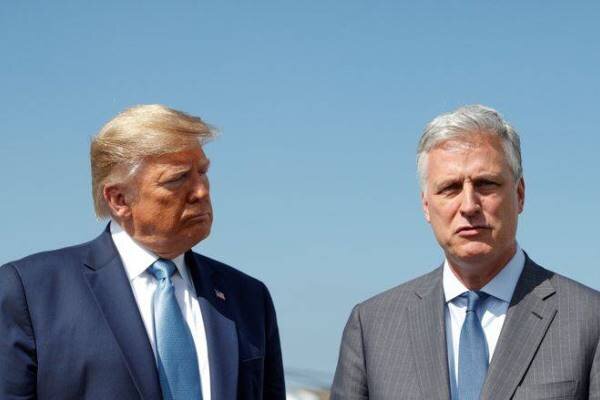Dr. Fouad Izadi, in an interview with the website of the Strategic Council on Foreign Relations, referring to the statements of a White House official who accused Iran, China and Russia of interfering in the US unrests, said: White House officials are looking for a blame game with these remarks. The killing of blacks and at the same time the violent suppression of demonstrators who do not use violence and whose slogan is ‘our hands are up, has no justification.
He added that White House officials want to challenge the legitimacy of the protests by linking protests and protesters to foreign countries. “By this action they are somehow attacking their own people and through blame game they want to make others accountable. The fact that they are not fulfilling their responsibilities does not help to improve the situation and increases the problem, which is not in their best interest.”
The professor of Tehran University continued: “It is a good thing for us that the black audience believes that, for example, Iran supports this protest movement and wants to help. Because we believe that those who are protesting in the streets will finally gain power in the United States following the demographic change that will take place in the country. According to statistics, by 2045, the white population in the United States will be in the minority and the color population in the majority, and when that population becomes the majority, American policy will gradually change, both internally and externally.”
US Administration Not Seeking to Negotiate with Iran
The analyst of the US developments regarding Trump’s efforts and the proposal to negotiate with Iran, despite the accusations leveled against our country, emphasized: The US government is not looking to negotiate with Iran. Because negotiation has its own level and is announced directly or privately, for example, in return for getting a number of points, other points are given. While in the Trump administration, the US government has never talked about giving concessions and has always talked about preconditions! (Secretary of State) Mr. Pompeo has set 12 preconditions and finally they tell Iran that you must implement these preconditions and become a normal country! These are signs of normalization, and it’s your job to make it normal! It is never said what will happen and what benefits you will receive after you have fulfilled the conditions.
Izadi said the Trump administration was seeking the overthrow of the Islamic Republic or its complete surrender, which has failed in both cases, adding: “Whenever Americans are interested in negotiating, they know how to convey the message of the negotiation.” Mr. Trump’s tweets are of the first type, and he says come and talk to me! I will solve your problems! Discussing concessions to Iran is not an option, and their actions are mostly propaganda.”
Expecting Iran’s Declaration of Support and Solidarity with Black Americans
Regarding their efforts to accuse Iran, China and Russia of creating skepticism in the public opinion of the Americans against these countries, the professor of Tehran University said: “They will not achieve such a goal. The American people are divided into two groups. A group is oppressed and protesting or join the protesters. The group includes people of color and a significant portion of whites who would be happy if they knew a country was supporting them, as American black professors invited to one of the webinars, all without exception, said they expected Iran to declare support and solidarity.
He continued: “There are activities that only Iran can do; For example, only Iran can send gasoline to Venezuela, some countries do not have gasoline, others do not dare to supply it. Iran has both the gasoline and the courage. The same is true of the recent protests. Our task is to be active, at least in the area of solidarity.
Izadi added: “Racists and Trump supporters are another group that basically opposes Iran. In fact, they may not like Iran’s support, given their knowledge of hostile US policies and maximum pressure, but they understand the logic that when they work against Iran, Iran can reciprocate.”
Solidarity with the Oppressed People of America Is Our Duty & Serves Our Interests
He said: “The first group will come to power in the face of demographic change in the United States, and we will have to do the same thing we did with Iraqi immigrants. No one thought that Saddam’s government would be overthrown, but it was our duty to support the Iraqi refugees, and we did. When Saddam’s government was overthrown, they came to power. Until then, some thought that supporting immigrants was a waste of money, but it turned out to be the right thing to do. We will have the same problem with the United States in the coming decades. Therefore, it is in our interest and our duty to work with the oppressed people of the United States.”










0 Comments